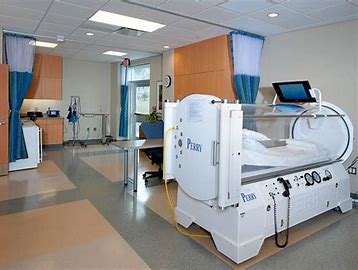Research and innovation are key enablers to achieving quality and targeted healthcare for Nigerians.
Minister of State for Health and Social Welfare, Dr Tunji Alausa made this known on Wednesday in Abuja during a national strategic meeting on health research development and innovation.
Alausa said that these developments were expected to significantly improve health outcomes and enhance the quality of care across the country.
He underscored the essential role of research and innovation in tackling Nigeria’s health challenges.
He said that Nigeria, with its diverse population and unique health challenges, stands at a critical juncture.
“It is through rigorous research that we gain the insights necessary to develop effective interventions,” he stated.
He highlighted the transformative potential of innovation to turn these insights into tangible solutions that improve lives.
He highlighted President Bola Tinubu’s Renewed Hope Agenda, which prioritises quality and accessible healthcare for all Nigerians.
He noted the unprecedented support from the administration for the health sector, emphasizing the considerable responsibility this places on health leaders.
“With this comes a huge responsibility on our shoulders to perform.
“Research and Innovation is one of our key enablers to achieving quality and targeted healthcare for our fellow citizens,” he said.
Encouraging participants to think boldly and creatively, he urged for an embrace of collaboration and partnership.
“Let us also commit to translating our research findings into policies and practices that make a real difference in the lives of our people,” he added.
He stressed the importance of diverse ideas and perspectives in achieving significant breakthroughs.
Also speaking, the Permanent Secretary Federal Ministry of Health and Social Welfare, Ms Kachollom Daju said the goal was to align health research with national priorities, foster collaboration, and find innovative solutions to healthcare challenges.
“Inspite of our nation’s health issues, we have vast resources and expertise to drive groundbreaking research and sustainable development,” she said.
Daju highlighted the importance of Universal Health Coverage (UHC) and the role of health research in achieving it.
“The administration is committed to creating a conducive environment for health research, reconstituting key health committees, and promoting local drug and vaccine manufacturing.
“Strengthening health security through cutting-edge research is essential,” she said.
The Chairman, of NHREC, Prof. Richard Adegbola said that health research plays a critical role in shaping healthcare policies, improving treatment outcomes, and enhancing public health interventions.
Adegbola said that it provides data on disease trends, risk factors, treatment outcomes, public health interventions, functional abilities, care patterns, and healthcare costs.
“Despite potential benefits of health investments, resource-poor countries, including Nigeria, struggle with the poor quality of research findings and their reliability.
“As part of the Health Sector Renewal Agenda, the Nigerian government is making significant efforts to improve the quality of research output through resource mobilisation, creating a sustainable platform for improved capacity building at all levels,” he said.
MAN reports that the National Health Research Committee (NHRC), was established by the National Health Act of 2014.
It aims to strengthen health research in Nigeria. Leveraging the country’s large population, the NHRC aspires to make Nigeria a research hub in sub-Saharan Africa.
Recently inaugurated by the Minister of Health and Social Welfare, the NHRC intends to enhance the research ecosystem, foster innovative research and build capacity for young health researchers.
The committee’s objectives include leading evidence-based healthcare decision-making and harmonising health-related research.
Others are to support health research startups, accelerate multidisciplinary research, facilitate collaboration between researchers and policymakers, and help young researchers develop grant writing skills.
These, the federal government said, are expected to significantly improve health outcomes and enhance the quality of care across the country.
NAN


